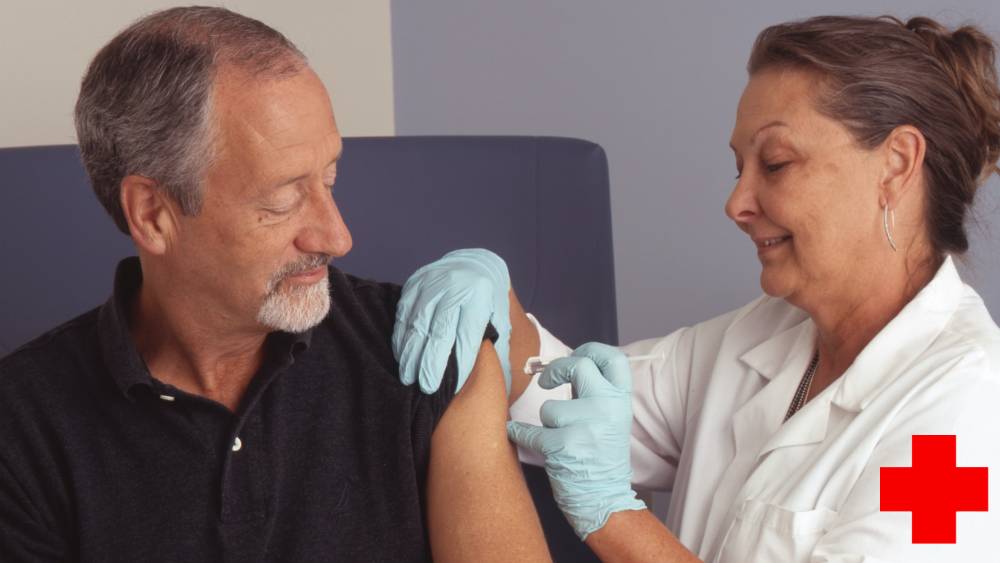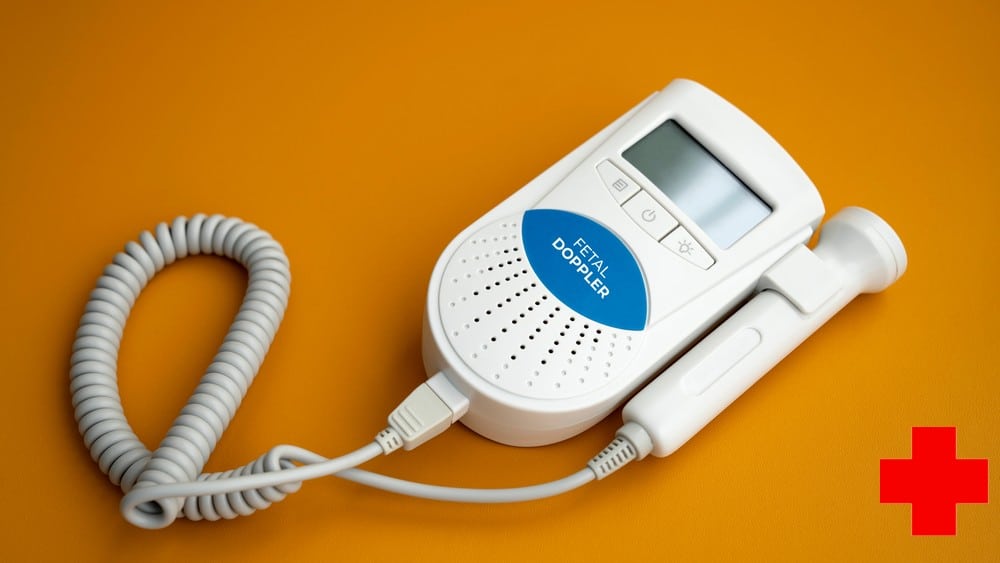Hi there, Welcome to this must-read guide on how to become a Neonatal Nurse Practitioner!
This comprehensive guide will cover the educational and certification requirements for Neonatal Nurse Practitioners (NNP).
By the end of this article, you’ll be clear on the step-by-step process of becoming a Neonatal NP.
We will cover the following:
- Neonatal NP Certification requirements
- Neonatal Nurse Practitioner education requirements
- Step-by-step process of becoming a Neonatal Nurse Practitioner
Let’s jump right in!
Introduction

Neonatal Nurse Practitioners are Advanced Practice Registered Nurses (APRNs) responsible for providing specialized care to newborns.
The Neonatal Nurse Practitioner job description requires NNPs to:
- Assess high-risk infants
- Diagnose and provide critical care to Neonates
- Perform diagnostic tests and medical procedures
- Operate and maintain ventilators and other medical equipment

Neonatal Nurse Practitioners work directly under Neonatologists to treat high-risk infants in different medical settings, including Neonatal Intensive Care Units (NICUs) and delivery rooms.
Working in a Neonatal Intensive Care Nursing environment requires these healthcare professionals to gain the requisite nursing education, skills, and clinical experience.
This article will provide a blow-by-blow commentary on the necessary steps and actions toward becoming a Neonatal Nurse Practitioner.
Read on for a comprehensive breakdown of the educational and certification NNP requirements.
How to become a Neonatal Nurse Practitioner

Before embarking on your Neonatal Nursing Practitioner journey, you must understand the certification and education requirements of this nursing career.
Here are the requirements to become a Neonatal Nurse Practitioner:
Educational Requirements
There are several entry-level educational requirements for Neonatal Nurse Practitioners, including the following:
1. Undergraduate Nursing degree
The first step in the Neonatal Nurse Practitioner education journey is earning an undergraduate Nursing degree.
There are two main types of nursing degrees available for you.
Bachelor of Science in Nursing (BSN) degree
The BSN is a four-year bachelor’s degree program that equips potential Nurses with the technical skills and knowledge to effectively and safely provide Nursing care to patients.
Enrolling in a BSN Program will expose you to the following core Nursing principles:
- Patient care technology
- Medical research
- Health promotion
- Healthcare system safety and quality
- Nursing information management
The BSN degree is a requirement for health professionals intending to work as Registered Nurses in the US and Canada.
Associate Degree in Nursing (ADN)
The ADN is an undergraduate Nursing degree that introduces students to the fundamentals of nursing.
This two-year undergraduate nursing degree program, although valid, doesn’t meet the basic Neonatal Nurse education requirements.
ADNs and Diploma RNs can upgrade their ADN to BSN by enrolling in an ADN-BSN Bridging Program.
The RN-BSN program requires:
- An active RN license
- 30 hours of clinical practice weekly
- Pass a criminal background check
2. Post Graduate degree
Aspiring Neonatal NPs require a postgraduate degree in Nursing.
The typical post-graduate degrees include:
Master of Science in Nursing (MSN)
The MSN is a graduate-level Nursing program that equips a BSN holder with the necessary skills and experience to offer specialized nursing services.
Candidates who wish to join the Neonatal Nursing Practitioner career must complete a Master’s program specializing in Neonatal studies.
The Neonatal Nurse Practitioner MSN Program often takes two to three years, depending on whether the candidate is a full-time or part-time student.

An MSN Neonatal Nurse major should expect to cover the following study areas:
- Advanced pathophysiology
- Advanced pharmacology
- Heath policy, legislation, and legal issues
- Healthcare finance and delivery
- Advanced Nursing research
- Leadership for quality healthcare
Doctor of Nursing Practice (DNP)
The Doctor of Nursing Practice is the highest post-masters degree program available to Nursing Practitioners.
This Advanced Nurse Practitioner Program takes between one to two years and equips Advanced Practice Nurses with the skills and training required to provide high-quality care to newborns.
Additionally, the Neonatal DNP Program produces the bulk of senior-level NP Managers and Policymakers.
The American Association of Nurse Practitioners, 2018 report concludes that only 14% of Nurses hold a DNP degree.
The DNP-NNP Program coursework will cover various topics, including:
- Advanced Pharmacology
- Healthcare policy and law
- Advanced Neonatal assessments
- Advanced Pathophysiology
- Care Management and outcome improvements
Candidates who complete the Neonatal Nurse Practitioner DNP Program are highly regarded and favored in the job market.
Here are the entry-level requirements for the Neonatal DNP Program:
- Current RN license
- Valid BSN degree
- Clinical Nursing experience
- Valid Neonatal Master’s degree
Neonatal Nurse Practitioner Certification requirements
Due to the nature of the job, Neonatal Nurse Practitioners’ work requires highly skilled and certified health professionals.
NNP Certification validates the training, skills, and competence of an individual.
There are two main certification requirements for NNPs:
NCLEX-RN Certification
The National Council Licensure Examination (NCLEX-RN) is a national Certification Exam that tests the skill and technical competence of a potential Registered Nurse.
The variable-length NCLEX-RN developed by the National Council of State Boards of Nursing (NCSBN) uses adaptive testing technology to test candidates.
Every RN in the US and Canada must pass this licensure exam to satisfy the requirements for practicing as RNs in their respective countries.
NNP Certification
The Neonatal NP Certification is awarded to students who sit the Neonatal Nurse Practitioner Certification Exam, a competency-based test for candidates wishing to practice as NNPs.
This board-certified entry-level NNP Licensure Exam developed by the National Certification Corporation (NCC) tests the applicant’s skills, training, competence, and suitability to serve as a Neonatal NP.
Successful candidates earn the NNP-BC designation.
Before sitting the exam, a Neonatal Nurse must satisfy the NNP Exam requirements, including:
- Holding a valid RN license
- Earning a Neonatal Nurse Practitioner degree
- Having relevant Neonatal RN experience
Continue reading for the steps to becoming a Neonatal Nurse Practitioner.
Steps to Become a Neonatal Nurse Practitioner

If you’re wondering how to become a NICU Nurse Practitioner, this section will provide a blow-by-blow commentary:
1. Earn a BSN degree
The first step in your Neonatal NP journey is to earn a Bachelor of Science in Nursing degree (BSN)
The four-year BSN degree from an accredited Nursing training school will equip you with the necessary skills and competence to effectively carry out RN duties.
You can opt for an accelerated ADN-BSN Program if you have an ADN Degree.
2. Pass the NCLEX-RN Exam
The NCLEX-RN is a Licensure Exam that all Registered Nurses must satisfy before earning the RN designation.
This National Licensing Exam from the NCSBN tests a candidate’s knowledge and experience in nursing.
Candidates who successfully pass the NCLEX-RN are included in their state’s Nursing registry and can now professionally practice as RNs.
3. Gain experience in Neonatal Nursing
Nursing experience is a critical part of the Neonatal Nurse Practitioner’s journey.
Most post-graduate NNP Programs require at least two years of Nursing experience to join the program.

Through hands-on Nursing experience potential, NICU NPs gain the necessary knowledge and skills to deliver high-quality services to sick newborn babies.
You can gain the necessary Neonatal Nursing experience by seeking employment in a hospital’s Neonatal Nursing Unit.
Level iii Neonatal Units are perfect for gaining experience as these specialized hospital departments offer a vast range of Neonatal services.
4. Earn a Neonatal Nursing Postgraduate degree
To gain the necessary skills and experience, NICU Nurses need to upgrade their Nursing training and skillset through post-graduate NNP Programs.
These Advanced NNP Programs rely on adaptive teaching techniques to equip NNP Nurses with the requisite knowledge to tackle emerging challenges of the Neonatal NP Specialty.
The two main types of postgraduate Neonatal NPs available for you are a Neonatal Masters of Science in Nursing (MSN) and the Neonatal Doctor of Nursing Practice (DNP) degree.
Neonatal Master of Science in Nursing (MSN) Program
The MSN Neonatal is a comprehensive 2-3 years education program that prepares candidates to provide high-quality medical services to newborn infants.
Numerous accredited nursing training institutions and medical universities offer the NNP MSN Program through in-person and online programs.
Since the competition to join the MSN-NNP is relatively high most institutions require candidates to:
- Hold a valid RN license
- Posses nursing experience
- Hold competitive GPAs
- Have authoritative reference letters
- Transcripts from accredited nursing training institutions
Neonatal Doctor of Nursing Practice (DNP) Programs
The Neonatal DNP is a Neonatal Nursing Program that prepares Neonatal MSN holders to provide the highest form of nursing care to newborns as Neonatal Clinical Nurse Specialists.
Admission requirements for the Neonatal DNP Program include:
- Valid RN license
- Master’s degree in Nursing
- Nursing experience
- Valid BSN degree
Most Neonatal DNPs often work in academia and policy formulation as senior advisors or on the boards of NNP bodies and societies.
5. Earn NNP Certification
The Neonatal Nursing Practitioner Certification is a national competency exam that confers a nursing license to NNP candidates.
The NNP Certification offered by the National Certification Corporation validates the skills and training of a Neonatal NP.
To earn the NNP license, candidates need to sit and pass a Certification Exam that tests their technical competence and understanding of Neonatal Nursing principles,
Successful candidates earn the NNP-BC title, which designates as fully trained and qualified Neonatal Nurse Specialists to deliver high-quality Neonatal Nursing services.
Eligibility requirements for the NNP Certification include:
- Current and valid RN license
- Post-graduate Nursing degree from an accredited Nursing school (MSN/DNP)
- Relevant educational transcripts and diplomas
These are the five necessary steps to becoming a Neonatal Nurse Practitioner.
How to maintain Neonatal NP Licensure

Neonatal Nurse Practitioners need to maintain their various licenses to conform to state and federal nursing requirements.
Here is how a Neonatal NP maintains two of the necessary licensure they hold:
RN Licensure
Different Boards of Nursing have varying requirements for renewing the RN license.
Generally, the Registered Nurse Licensure is renewed every two to three years, depending on your state of residence.
Standard RN License Renewal requirements include:
Continuing Education classes
Continuing education classes update the Neonatal NP on the latest developments in the Nursing field.
According to the American Nursing Credentialing Center (ANCC), Continuing education “builds upon the educational and experiential bases of the Registered Nurse for the enhancement of practice, education, administration, research, or theory development, to the end of improving the health of the public.”

Continuing Education Units (CEUs) often cover topics on medical technology, specialized treatment, nursing legislation, and method of care.
Consider checking with your state’s Board of Nursing to get the required continuing education requirements:
Practice hours
Like with the continuing education requirements, each state has its requirements for nursing practice hours.
Practice hours are essential and prove that you’re actively practicing as an RN in your state.
Failure to meet the requirements for RN practice hours may require you to attend a refresher course or cover more Continuing Education Units.
Paying renewal fees
To renew your RN license, you must pay the required renewal fees.
Consider checking with your state Board of Nursing to get the correct figure for RN license renewal.
NNP Licensure
The NNP-BC from the NCC is renewable after every three years.
Requirements for maintaining the NNP license include:
- Holding a valid RN license
- Completing the continuing competency assessment
- Updating relevant copies of license verification to the NCC database
Here is the step-by-step process of updating your NNP License:
1. Sit for the continuing competence assessment
2. Review your education plan
3. Add Continuing Education credits to your maintenance application
4. Submit license maintenance application
Tips on how to become a Neonatal NP

To improve your chances of success in becoming a Neonatal Nurse Practitioner, follow these tips:
1. Enroll in Accredited Nursing Programs
To improve your chances of success and reduce disqualification, consider enrolling in accredited RN Nursing programs from respectable Nursing training Institutions.
You can get a comprehensive list of accredited nursing training institutions from the National Association of Neonatal Nurses (NANN) and other professional nursing websites.
Studying at accredited nursing institutions ensures that you obtain high-quality training and improve your professional CV.
2. Earn nursing experience from a busy Neonatal Unit
A prerequisite for becoming a Neonatal Nurse Practitioner is earning relevant and high-quality nursing experience.
To improve your chances of joining a Neonatal Master’s or DNP Program, consider seeking employment or interning in a busy neonatal setting.
Busy Neonatal Units will vastly improve your skillset and impart relevant neonatal nursing experience, which is valuable in the long run.
3. Read widely
As with other nursing professions, extensive reading is recommended.
Consider taking the continuing education units regularly as they improve your knowledge on nursing matters, making you better prepared to deal with emerging health issues.

Additionally, attending professional engagements offers excellent exposure to new nursing knowledge that helps grow your nursing skill set.
4. Earn additional certifications
Earning additional nursing certifications improves your professional portfolio and allows you to bargain for higher salaries.
Apart from the NNP and RN Certification Neonatal NPs can earn extra certifications that validate their training and expertise in the Neonatal space.
Consider earning extra certification in leadership, finance, or management
Conclusion

Is becoming a Neonatal Nurse Practitioner worth your time, considering the long study periods and effort required?
According to the U.S. Bureau of Labor Statistics, the job outlook for Neonatal Nurse Practitioners is positive and worth your time.
The BLS concludes that the Neonatal Nurse Practitioner industry will grow by 52% between 2020 and 2030.
The increased demand for pediatric and Neonatal professionals means that investing your time and resources into this career will pay handsome returns in the long run.
As healthcare providers that offer critical medical services to children from prematurity through to two years, the demand for the Neonatal NPs isn’t going down anytime soon.
We hope that this comprehensive article will act as your go-to guide as you embark on this exciting Neonatal Nurse Practitioner journey.
Please continue reading for answers to our reader’s frequently asked questions.
FAQs

What is NNP?
The Neonatal Nurse Practitioner (NNP) is an Advanced Practice Nurse (APRN) responsible for providing primary care and advanced nursing services to Neonatal patients. NNPs work in Neonatal Intensive Care Units (NICUs), delivery rooms, and private practice. Neonatal NPs hold Masters of Science in Nursing or Doctor of Nursing Practice degrees.
What skills are needed to be a Neonatal Nurse Practitioner?
Advanced NICU Nurses require various hard and soft skills to be effective in their job. Here are the top NNP skills:
– High-quality patient care
– Compassion and empathy
– Excellent communication and interpersonal skills
– Problem-solving skills
– Leadership and command
– Team player
– Critical thinking
– Ability to work under pressure
Neonatal Nurse schooling years
The average NICU Nurse’s schooling years depend on the candidate’s mode of study. It will take 16 -17 years to become a NICU Nurse. Here is the schooling years breakdown:
– Eight years of primary education
– Four years of secondary education
– Four years for a Nursing degree
What education is needed to become a Neonatal NP?
To become a Neonatal Nurse Practitioner, you must satisfy the following educational requirements:
Earn a BSN degree (You can upgrade an ADN to a BSN)
Earn a postgraduate nursing degree from a recognized nursing training school (Masters of Science in Nursing or Doctor of Nursing Practice)
How hard is it to become a Neonatal Nurse Practitioner?
Becoming an NNP is a long and arduous journey that requires dedication, discipline, and hard work. Neonatal NPs need at least 6-7 years of post-secondary nursing training and several years of experience to attain the NNP designation. Several certification exams and continuing education also make the NNP journey quite challenging.
How long does it take to become a Neonatal NP?
The Neonatal Nurse Practitioner’s schooling years vary depending on whether you’re a full-time or part-time student. Students take a total of 18-19 years to earn the NNP designation consisting of:
– 12 years of elementary and secondary school
– 4 years for a BSN degree
– 2-3 years for a Master’s degree
What are the steps to becoming a Neonatal Nurse?
Healthcare providers who wish to serve as Neonatal NPs must satisfy the following steps:
– Earn a BSN degree
– Pass the NCLEX-RN exam
– Gain real-life Nursing experience
– Earn a postgraduate Nursing degree (MSN, DNP)
– Pass the NNP Certification exam
– Maintain the NNP licensure through continuing education classes
Neonatal Nurse Practitioner salary
Check out the average NICU Nurse Practitioner’s salary according to different sources:
Salary.com – $129 978/year
Ziprecruiter – $110 249/year
Glassdoor – $114 722/year
Nursingprocess.org – $79 870/year
Comparably.com – $108 653/year
According to Ziprecruiter, Washington, New York, New Hampshire, California, New Jersey, and Massachusetts provide the highest NNP Salary.
What are the benefits of being a Neonatal Nurse Practitioner?
The Neonatal Nurse Practitioner enjoys several benefits, including:
– Earning competitive salaries
– Belonging to Nursing professional bodies
– Deriving high levels of job satisfaction
– Giving sick newborns a second chance to live ordinary lives
– Enjoy stable and long-term job opportunities
– Enjoy competitive working conditions with perks and incentives
Where do Neonatal Nurse Practitioners work
Neonatal Nurse Practitioners work in various settings, including:
– Neonatal Intensive Care Units (NICUs)
– Home healthcare services
– Delivery rooms
– Pediatric Hospice and palliative centers
– Medical transport and evacuation agencies
– Government and community health agencies
– Academia and research agencies
– Private practice
– Phone triage centers
– Pediatric medical centers
What Neonatal services are available in a level iii NICU facility
Unlike level ii facilities that only offer primary care services to Neonates, level iii facilities provide a full range of services, including specialized care. Services in level iii facilities include:
– Full range of respiratory services
– Advanced medical procedures
– Surgery
– Advanced imaging and diagnostic services
– Resuscitation and continuous life support









